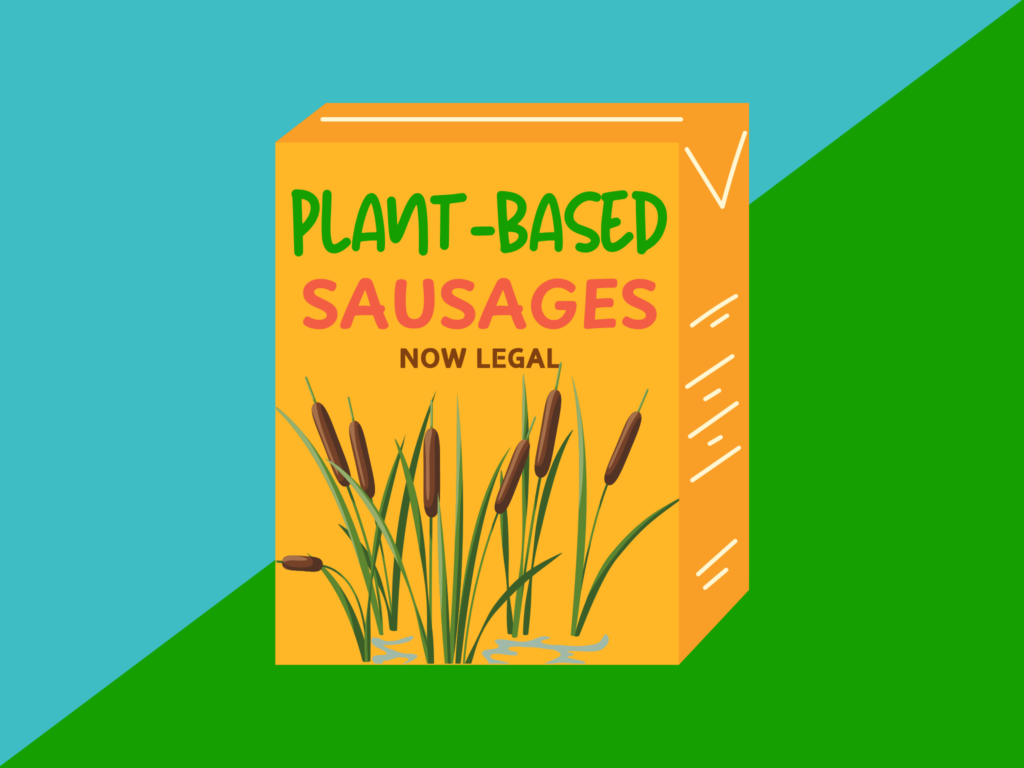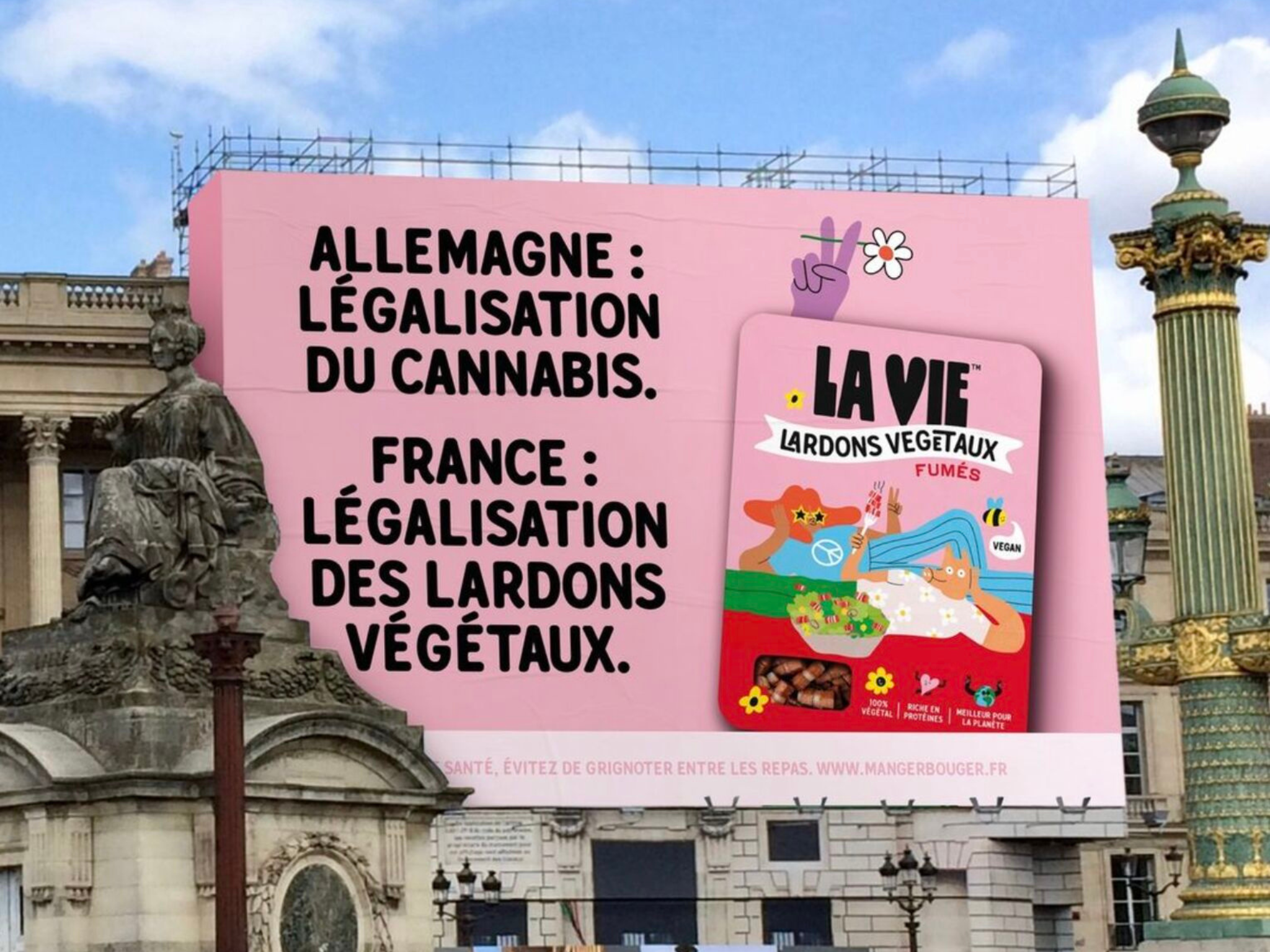The Veggie Burger Debate: EU Court Blocks France’s Attempt to Ban Meaty Names On Plant-Based Food Labels
5 Mins Read
The European Court of Justice has rejected France’s proposed ‘veggie burger’ labelling ban, allowing plant-based food producers to continue using meat-like terms on their packaging. What happens next?
In a major win for the plant-based sector, the European Court of Justice (ECJ) has ruled that no member state can prohibit companies from using terms like ‘veggie burger’, ‘plant-based sausage’ or ‘vegan bacon’ on product labels.
The ruling is in direct response to a 2023 decree by the French government, which sought to ban the use of such words on plant-based meat packaging following a request from the livestock farming sector. The legislation was suspended by the top court in France, after receiving a complaint from the European Vegetarian Association (EVU), the Association Végétarienne de France, and industry giant Beyond Meat.
The Conseil d’Etat referred parts of the case to the ECJ, which has now also rejected the ban and returned the dispute to the French court for a final decision.
The ECJ’s direction, which makes an exception only if very specific conditions are met, has implications for governments and companies across the bloc, and will save the plant-based industry millions in packaging and marketing redesigns.
Welcoming the ruling, a spokesperson for Beyond Meat told Green Queen: “We are pleased that common sense has prevailed and that the court has recognised the ability of consumers to make their own informed decisions.”
Rafael Pinto, EU policy manager at the EVU, called it a “no-nonsense conclusion” that would guarantee accurate information to consumers and discourage member states “from attempting to enforce name bans that are ultimately counterproductive, self-damaging and creating greater consumer confusion”.
ECJ strikes down attempt to restrict inclusion levels of plant protein

France has tried to impose a labelling ban on plant-based meat twice. The first time, in June 2022, it issued a decree aiming to ban all meat-like terms except ‘burger’, but after complaints from meat-free companies and associations, the French court suspended the decree, arguing that the timeline was too short and wording too vague.
The second decree, proposed in September 2023, was nearly identical, co-signed by then Prime Minister Élisabeth Borne, then finance minister Bruno Le Maire, and agriculture minister Marc Fesneau. This order looked to ban 21 terms like ‘steak’, ‘beef’, ‘ham’ and even ‘grilled’. Non-compliance, it stated, would result in a fine of up to €1,500 for individuals and €7,500 for companies.
But it didn’t stop there. The decree named 120 more phrases – like ‘bacon’, ‘sausage’, ‘cooked fillet’ and ‘nuggets’ – that companies could use, only if the amount of plant protein didn’t exceed a maximum limit ranging from 0.5% to 6%. This, of course, meant that no fully meat-free products could use these terms, since they are usually 100% plant proteins.
The ECJ addressed this caveat too, ruling that countries can’t adopt national measures that determine inclusion levels of plant proteins below which the use of meat-like terms isn’t allowed.
The decision notes that such bans can be implemented only if a member state legally defines meat products and descriptive terms first, and even then, such a ban would only apply to products manufactured within that country.
“On the French case specifically, now it will go back to the French courts, where it will be decided whether the decree that started this also creates definitions of meat and descriptive terms, or just bans their use for plant-based products,” Pinto told Green Queen.
“Since that was not the scope of the decree, it doesn’t seem like it is detailed enough to create the definitions, but the court might think otherwise.”
Setting a legal definition would harm the EU single market

The global battle over plant-based labelling has been ongoing for years now, with the major argument being that terms like ‘veggie burger’ confuse consumers. But several studies have shown this isn’t the case, with most consumers knowing the difference between plant- and animal-derived proteins. Plant-based companies like Tofurky, Miyoko’s Creamery, Planted, Oatly and NotCo have all won legal battles over product labelling.
“As France’s Conseil D’etat reviews the ruling, we will continue to argue for and support consumers’ rights to the genuine choice they demand and deserve,” Beyond Meat’s representative said.
In a statement sent to Green Queen, Nicolas Schweitzer, co-founder and CEO of Paris-based vegan pork startup La Vie (which just raised €25M), said: “We are so thrilled that, on La Vie’s third anniversary and World Animal Day [October 4], the ECJ has ruled in our favour. We can therefore continue using common names such as plant-based bacon and plant-based ham, which are the clearest for consumers.”
The ECJ’s verdict acknowledged that existing EU law offers sufficient consumer protection, so additional national regulations contradicting this aren’t allowed. As for the legal definition exception, this is a lengthy and complex process that would risk further spiralling into “EU-level harmonisation issues”, the EVU said.
To do so, member states would need to legally define what constitutes a burger or a sausage. So far, no country has an established legal definition, according to the EVU. “There are customary definitions and industry recommendations, but not nothing legal,” said Pinto.
“If this goes forward in several member states, the definitions might not match each other due to cultural and linguistic differences, creating problems for consumers and producers with products on the same market under different names, for both meat and plant-based products,” he added. “It may lead to further fragmentation of the EU single market and hinder competitiveness and consumer information.”
The ECJ’s decision comes four years after the European Parliament rejected an EU-wide ban on meaty terms for plant-based analogues, although MEPs upheld the court’s 2017 ruling that similarly restricted the use of dairy-related words on vegan products.
“The case of dairy is different since there are legacy EU regulations establishing definitions of what can be considered dairy, contrary to meat alternatives,” Pinto said when asked about efforts to reverse the alt-dairy labelling ban. “EU law would have to change in order for plant-based dairy alternatives to be able to use the same denominations the rest of the world already uses, such as soy or oat milk.”



